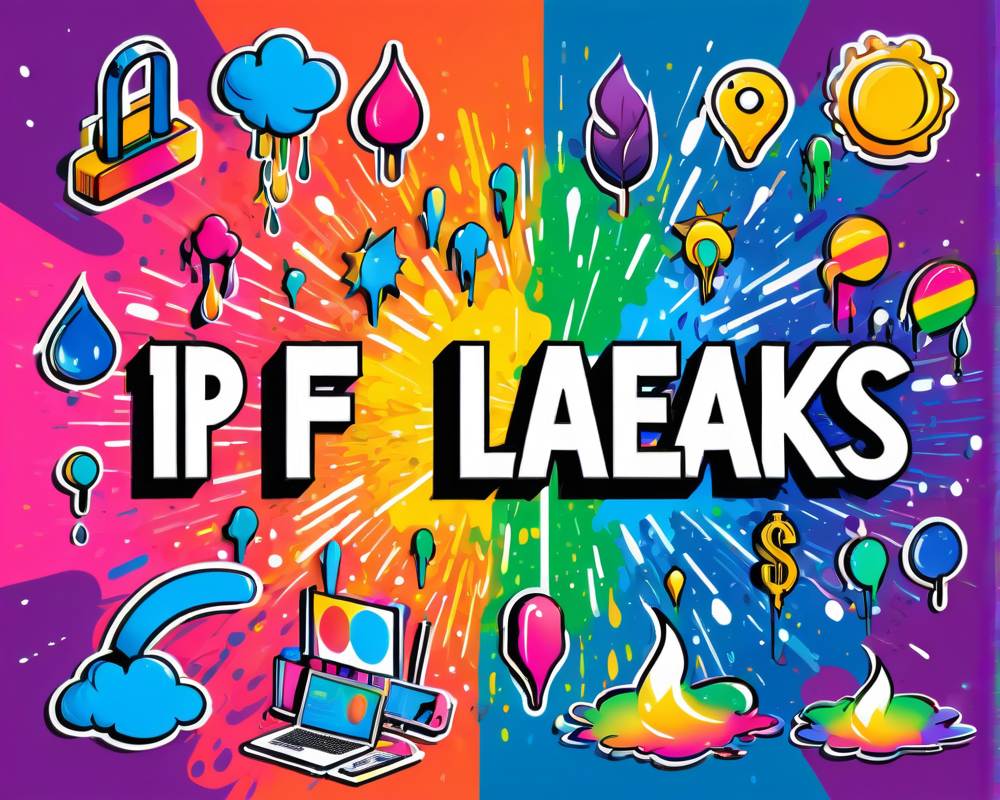Understanding the IP Leak Phenomenon
In the realm of nonfungible tokens (NFTs), privacy is a luxury few can afford. Researchers from Convex Labs and OMNIA Protocol have unearthed alarming instances of IP address leaks when users engage with NFT marketplaces like OpenSea. But how exactly does this sneaky breach occur?
The Case of Nick Bax and His IP Logging NFT
Nick Bax, the head honcho of research at Convex Labs, decided to throw a spotlight on this issue by launching his very own NFT—a humorous piece of digital art dubbed “I just right click + saved your IP address.” No one saw this coming, right? With a nod to classic internet humor, Bax cleverly demonstrated that the NFT listing could secretly log viewers’ IP addresses. What a plot twist!
The Technical Breakdown
When you interact with an NFT, what you’re actually dealing with is a complex web of software and data. While the NFT itself is stored on a blockchain, the actual artwork often resides on remote servers. This discrepancy allows a vendor to embed HTML metadata, which, when fetched, can call upon an invisible pixel. This pixel’s job? To extract IP addresses, geolocation, browser type, and OS details of the viewer. Let’s be honest, we didn’t sign up for an uninvited peek into our digital life.
- Example: Imagine browsing for NFT art on your favorite marketplace, unknowingly sharing your IP address. This is how the invisible pixel can track you without a trace.
Metamask’s Role in the Privacy Quagmire
On the flip side, we have Metamask. Security analyst Alex Lupascu took a deeper dive into the Metamask wallet and came up with a similar issue. He discovered that sending an NFT to a Metamask wallet could allow a seller to harvest the user’s IP address. It’s like sending out a cheerful greeting card that also includes your home address—totally not okay!
Potential Consequences of These Leaks
Lupascu pointed out the dangers of this newfound vulnerability. A malicious actor could mint multiple NFTs pointing to a single URL, airdrop them like confetti, and gather a mass hoard of IP addresses. The danger? Everything from targeted DDoS attacks to even more sinister criminal activity that could encompass identity theft or worse. Grab your tinfoil hats, folks! We’re in for a wild ride.
Solutions on the Horizon?
Fortunately, there are whispers of solutions. One suggestion is to establish explicit user consent whenever a remote NFT image is fetched. Picture this: Metamask prompts you with a friendly message every time someone’s trying to access the juicy details of your online identity. Not such a bad way to keep your privacy intact.
Industry Response
In a rapid-fire Twitter exchange, Metamask’s CEO Dan Finlay acknowledged the ongoing issue, promising that they’re on it—this is an issue they had known for quite some time, but hey, better late than never! Meanwhile, Ethereum co-founder Vitalik Buterin stressed the importance of addressing off-chain privacy challenges in Web3 tenure, proving that even the elite are concerned about the lack of privacy amidst growing crypto adoption.
Final Thoughts
As we navigate this nebulous world of NFTs, it’s vital to remain vigilant about our privacy. With the piquant mix of technology and human nature, it’s up to both the platforms and users to safeguard digital identities. Because, let’s face it, the only thing we should be leaking are our embarrassing online shopping habits—definitely not our IP addresses!




